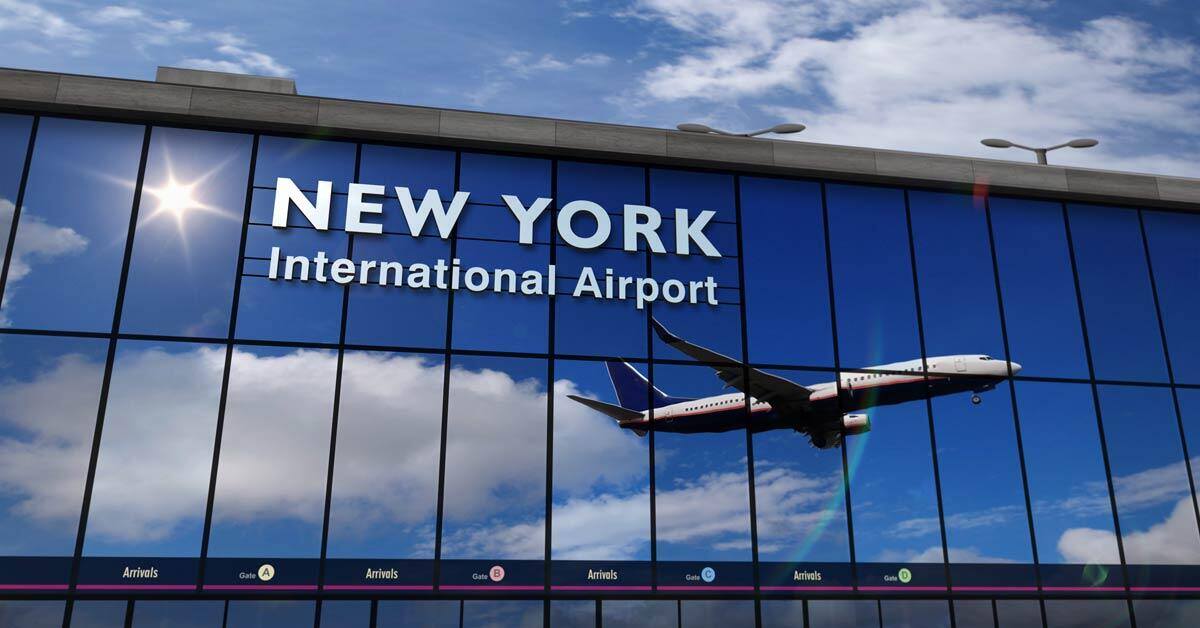3 min read
SAF Market Update: United, JetBlue Commit to More Renewables
ResourceWise
:
Jul 31, 2024 12:00:00 AM

Sustainable aviation fuel (SAF) remains a hotspot across the biofuels and aviation markets. As mandates loom and regulations become stricter, more companies will need to understand how this fuel will impact their respective business operations.
In this post, we’ve compiled several recent news and insights on SAF adoption, usage, and challenges.
United Airlines Will Adopt SAF at O’Hare International in Chicago
(Source: United Airlines via PR Newswire)
United Airlines has become the first airline to invest in SAF at Chicago's O'Hare International Airport (ORD). The initiative was made possible by SAF tax incentives provided by the state of Illinois.
Illinois Governor JB Pritzker highlighted the importance of this development, praising both the state’s support and United following through on its commitment to renewable fuels.
Neste will supply United with the SAF. The company will deliver up to one million gallons of its exclusive Neste MY Sustainable Aviation Fuel™ to United through the remainder of 2024. The first shipment is expected to arrive to ORD in August.
United Airlines has long supported moving operations toward achieving environmental initiatives. The company pledged to reach net-zero greenhouse gas emissions by 2050 without depending on voluntary carbon offsets.
The new SAF adoption further cements United as a frontrunner in sustainability. In 2023 alone, United's sustainable fuel procurement outpaced all other US airlines. With the company’s collaboration with Neste, ORD has become the fifth airport where United has operationalized the use of SAF.
JetBlue Partners with Valero, World Kinect on SAF Deal at JFK Airport in New York
(Source: JetBlue via BusinessWire)
JetBlue Airways recently announced they've partnered with Valero Energy Corp and World Kinect on a new SAF deal. The deal will produce SAF for JetBlue's fleet at New York's JFK International Airport.
The agreement stipulates that World Fuel Services will begin supplying SAF in Q4 2024. This initial agreement will last for 12 months, during which JetBlue will receive approximately 3.3 million gallons of blended fuel. The airline will also have the option to purchase an additional 13.3 million gallons, depending on usage.
The SAF used in this deal will be manufactured from multiple feedstock sources, ranging from agricultural waste to used cooking oils. Valero will mix it with traditional jet fuel to create a blend that can reduce greenhouse gas emissions by nearly 80%.
JetBlue's move comes as airlines face increasing pressure from climate change organizations and governments alike to reduce their carbon footprints. The Biden administration, for instance, has worked to set targets to bolster SAF output, aiding the aviation sector's shift from traditional fuels.
Air New Zealand Drops 2030 Emissions Goals,
(Source: BBC)
Air New Zealand recently announced the retraction of its 2030 goal to decrease carbon emissions. It attributed this pivot to obstacles encountered in acquiring better-optimized aircraft and SAF.
The move is the first time a major airline has withdrawn from such a climate commitment. But the good news is that a new short-term target is in the works.
In 2022, Air New Zealand set an ambitious 2030 goal to cut its emissions by 29%—a significant jump from the global aviation industry's modest 5% reduction goal over the same time frame.
SAF is instrumental in airlines achieving successful reductions in emissions. However, supply issues, pricing, and other challenges made securing this fuel more difficult than Air New Zealand anticipated.
Despite the bump in the road, the airline remains committed to the broader industry's goal of attaining net zero emissions by 2050. Airlines contribute a collective 2% of worldwide CO2 emissions. Shifts to more renewable operations, such as using SAF and upgrading outdated aircraft, are already in motion to achieve this objective.
Air New Zealand's decision reveals more of a mismatch in expectations and reality instead of a failure. Reducing emissions and adopting alternatives like SAF require broad logistical, governmental, and organizational work. Together, they can help move setbacks like this one back toward success.
Get SAF, Bio-Bunkering, and Other Critical Biofuel and Feedstock Pricing Data
Prima CarbonZero is a trusted provider of comprehensive pricing data and market intelligence for the biofuels industry and related sectors. By collecting data from diverse, reliable sources and employing rigorous analytical methods, our platform ensures the accuracy and relevance of its insights.
Simply stated, we help stakeholders understand market trends and make informed decisions. Biofuel producers can optimize production schedules, investors can identify profitable opportunities, and policymakers can develop informed regulations—all by leveraging our critical market data.
Follow the link below to learn more about the platform and schedule a demo to see how our market intelligence can take your business further.



![[Video] Molecules to Markets Episode 1: Chemical Markets Begin 2026 in a Supply-Driven, Margin-Sensitive Environment](https://www.resourcewise.com/hubfs/images-and-graphics/blog/chemicals/2026/weekly-video-series-molecules-to-markets/CHEM-Weekly-Video-Series-Molecules-to-Markets-Episode-1.png)
